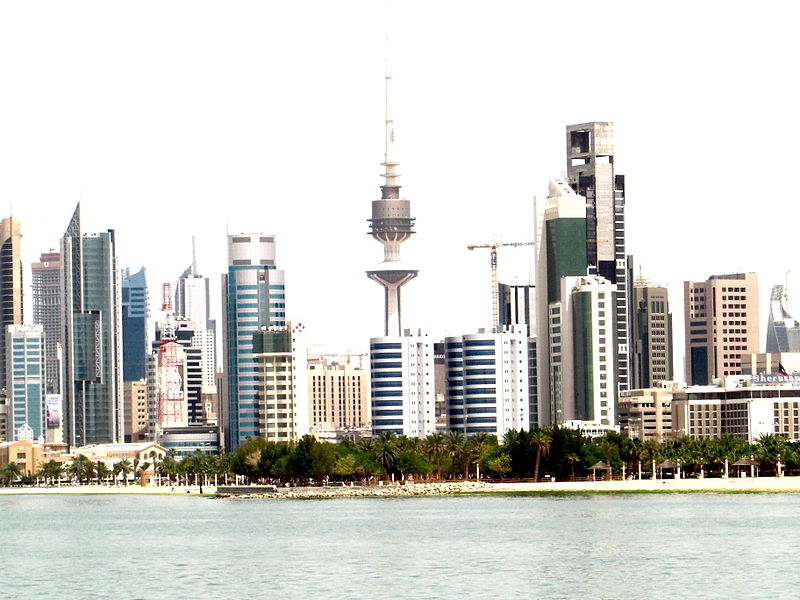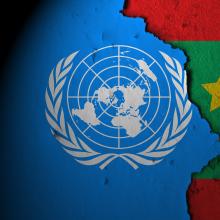February 05, 2020

During its Universal Periodic Review (UPR) on January 29, 2020, Kuwait received about 300 recommendations from 122 states on issues including the right to nationality, the rights to freedom of expression, opinion and peaceful assembly. States also used this opportunity to address the situation of Kuwait’s marginalised population including the Bidoon and migrant workers.
On January 29, 2020, Kuwait’s human rights record was examined before the UN Human Rights Council (HRC) during the country’s third Universal Periodic Review (UPR). The UPR is a peer-review mechanism by which UN Member States make recommendations to the country under review on how to improve its human rights record in light of the country’s international obligation. Kuwait is then required to notify the HRC of the recommendations it wishes to accept and those it rejects during the upcoming 44th session of the HRC in June-July 2020. Ahead of the review, MENA Rights Group and the Institute Statelessness and Inclusion submitted a shadow report, containing a list of recommendations, which were circulated among the reviewing states.
Freedom of expression, assembly, and association
While the rights to freedom of expression, peaceful assembly and association are protected under the Constitution, these rights are restricted by law and in practice. The criminalisation of defamation and blasphemy is a cause of concern, as well as “the application of restrictive, vague and broadly worded provisions” to target individuals who express critical views, including journalists and bloggers.
In light of this situation, the United States urged Kuwait to “amend the 1979 Public Gatherings Act, the 2015 Cybercrime Law, and the 2006 Press and Publications Law to protect the freedoms of association, peaceful assembly, and expression, and release those detained for exercising these rights.”
With regard to freedoms of association and assembly, Czechia recommended that Kuwait amends” the relevant laws on public gatherings and NGOs to guarantee the freedoms of association and peaceful assembly, in line with international standards”.
Law No. 24 of 1962 on Clubs and Public Welfare Societies bars civil society organisation from engaging in political or religious advocacy. At the same time, Decree Law No. 65 on Public Meetings and Gatherings prohibits the participation of non-nationals in public gatherings, which prevents Kuwait’s large stateless population from exercising their right to freedom of peaceful assembly.
Right to nationality
Kuwait has a population of about 100,000 stateless persons, known as the “Bidoon”, who are considered “illegal third country nationals” and are deprived of a number of their civil and political rights as well as their economic and social rights. Instead of remedying this situation, the authorities regularly crackdown on protesters claiming their right to a nationality.
While Germany recommended that Kuwait “accelerate the legislative process to resolve the Bidoon issue, by granting Kuwaiti citizenship to Bidoon people, ensuring non-discriminatory access to social services, and guaranteeing that Bidoons can exercise their rights to freedom of movement, peaceful assembly, opinion and expression”, Ireland urged Kuwait to accede to the 1961 Convention on the Reduction of Statelessness.
The issue of statelessness in Kuwait is exacerbated by the fact that Kuwaiti women are not entitled to pass on their nationality to their children resulting in a number of children being born stateless. As a result, no less than 13 recommendations were issued urging Kuwait to “remove all gender-discriminatory provisions from the Nationality Law” in order to “guarantee that women can transmit their nationality, in equal basis with men, to their espouses and children”.
Foreign nationals
Two-thirds of Kuwait’s population is comprised of migrant workers. Despite recent reforms, these migrant workers do not have adequate legal protections, and remain vulnerable to abuse, forced labor, and deportation for minor infractions.
Italy and Spain insisted on abolishing the sponsorship system (Kafala), which binds foreign worker to an employer as a sponsor, thereby creating a situation of vulnerability which favors abusive and exploitative work relationships.
There have been consistent reports of the exploitation, ill-treatment and torture of foreign workers, in particular female domestic workers who work under the sponsorship system. When migrant domestic workers leave an abusive employment relationship, they are considered by authorities and employers as “runaway” or “escaped” workers and are liable to imprisonment and deportation.
Next steps
Kuwait has until the 44th session of the Human Rights Council – which will run from June 15, 2020 to July 3, 2020 – to provide responses to the recommendations it received during its UPR. Kuwait will commit itself to implementing accepted recommendations ahead of its next review, which will take place in 2025.






